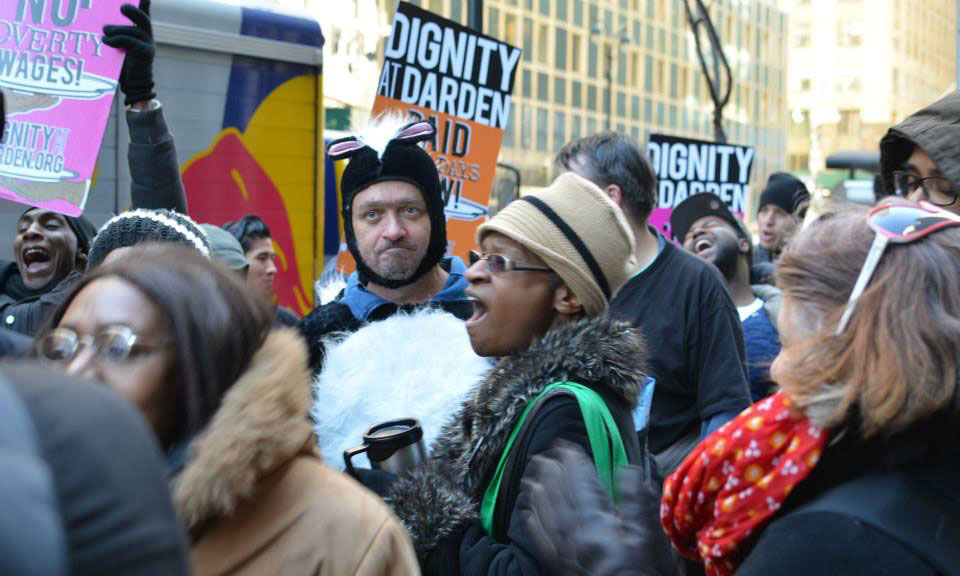
Unionization’s New Face: The Rise of the Worker Center
With traditional unions struggling in the face of a changing work climate, labor activists have started to change tactics, offering resources for employees in challenging work conditions without formally organizing them—a concept called the "worker center." Trade groups have strongly opposed the new approaches, but they've earned a degree of success thus far.
They aren’t unions, but they share a common goal.
The worker center, a concept that’s gained steam in recent years, has the potential to change the labor movement for good. And the concept’s early signs of success speak to an adaptation to the needs of potential members. Here’s how:
The model: Organizations built on the worker center model, most notably the Restaurant Opportunities Center (ROC), often share the mission of traditional unions—if not their tactics. The organizations don’t rely on collective bargaining or traditional membership structures, but they have made themselves known through wide-scale protests and lawsuits on behalf of employees. These efforts have shown signs of success. In the fashion industry, for example, a nonprofit group called The Model Alliance has used a mixture of public pressure, lobbying, and lawsuits to challenge various aspects of the industry, including child labor law violations, sexual harassment, and unsafe work practices that can threaten a model’s health. And the Freelancers Union, which is similar to the worker center model, offers members benefits they would not otherwise have.
Why this approach? Some workers, like bartenders and graduate assistants, have such jobs for shorter periods in their lives, and these often aren’t full-time positions. That makes it harder to build a strong basis for unionization. In other industries, such as modeling and freelance work, workers are independent contractors and don’t receive the benefits that full-time or even part-time employees might. In generations past, unions tended to start at businesses where the management structure was more obvious and therefore easier to challenge. “There are just very few sectors of the economy that fit that model anymore,” UMass-Amherst Associate Professor Eve Weinbaum told The Boston Globe about the weaknesses of the traditional union strategy in the 21st century.
Backlash from business groups: The worker center strategy has some detractors among trade groups—particularly the National Restaurant Association and the U.S. Chamber of Commerce, the latter of which held a briefing and released a report [PDF] on the issue last week. The business group says the model threatens to change the face of unionization by allowing a minority of employees to push for major changes to a work environment—an about-face from the way majority-driven unions have traditionally worked. “Unions have come to view worker centers as critical to their long-term future,” Chamber Workforce Freedom Initiative Vice President Glenn Spencer said in comments covered by Reuters. In a January post on the phenomenon on the Chamber’s blog, the business group argued that there’s little, beyond name, that separates worker centers from unions, and many of these groups have formal union affiliations. In a January New York Times article, a co-founder of ROC, Saru Jayaraman, said the tough response the group has received is encouraging. “It’s flattering,” she told the Times. “The fact that they’re attacking us is a sign that they feel threatened. That’s what happens when you challenge the industry to do the right thing.”
Beyond worker centers, traditional unions have been looking for ways to expand their shrinking influence. Most notably, AFL-CIO President Richard Trumka has made efforts to expand the group’s base beyond unionized workers by aligning with progressive groups.
A November protest against Olive Garden owner Darden Restaurants by the Restaurant Opportunities Center of New York. (via ROC NYC's Facebook page)






Comments